World Music Festival @ Taiwan 2019 will be held during October 18 to 20 at the Dajia Riverside Park. Gathering performance groups from Taiwan and all over the world, there are not only folk music bands with different moods, but also crossover performances seldom seen. In addition, there will be workshops for music and dancing, and plazas to bring versatile experiences to the audiences. We interviewed the chief curator Suying Yu and talked about her journey from working for the record industry to curating a music festival. She also shared with us the history of world music in Taiwan, and inevitably talked about her visions of the future of WMF@Taiwan in the present hard time for music festivals.
Now the WMF@Taiwan steps into the fourth installment. What is the original idea?
Since we (Wind Music) have been in the record industry for more than 30 years, we produced many indigenous, Hakka, and Hokkien Taiwanese music records. And then, we produced world music, crossover music, and natural sound records. All these products deeply connected with Taiwan, our homeland. Along the way we slowly accumulated professional experiences and resources. Meanwhile, we are one of the first Taiwanese record labels that attended Midem. Therefore, we've closely communicated with our peers from other territories. When it comes to the promotion of folk music, we have a lot of experiences.
At first, we can only afford smaller scale concerts, until 2016 we learned about that the Ministry of Culture had this project. We started to think about what we can embody in this case if we can undertake it. We've been so dedicated and responsible even though it's not really our own event. We wanted to show that there is much more than just pop music and rock music. Anyone can enjoy this music festival and experience lots of things you've never known.
Music is a medium and a platform. Everyone is going to have an unforgettable experience whether you are a performer, a staff member, or just a fan. We hope we can create the atmosphere for a family affair in this music festival.
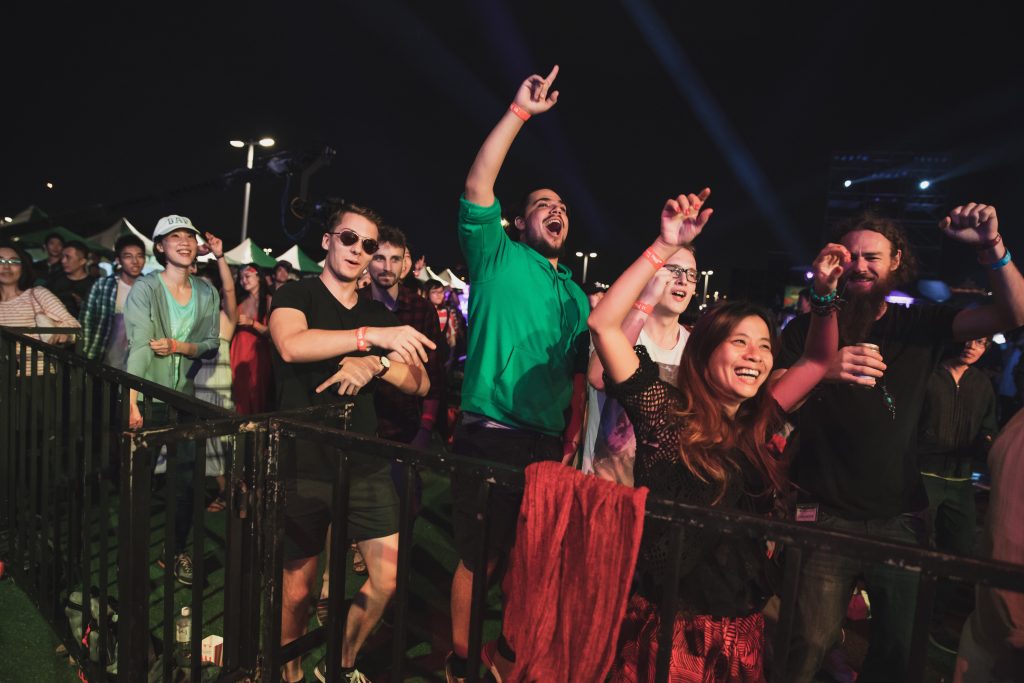
You mentioned that this festival embodies your experiences in the record industry. So what kind of inspirations do you draw from all these thirty-year experiences in the record industry?
The first thing is the way we look at music. Now we don't look at a tribe or a group in one dimension. For example, the Taiwu Ancient Ballads Troupe only sang their tribe's traditional chants before. When they cooperated with Wind Music, we got musicians from different genres to work with them, and tried different instrumental arrangements. To innovate from traditions is the way to produce records in Wind Music, and we adopt this concept in the festival. When we want to invite a musical group, we will consider: do they have a profound base in traditions? Is it professional and brilliant enough in the innovations from traditions while combining with modern concepts?
The other part is the content of the performance. We hope a group can perform something creative and just for this festival. For example, in 2018 we invited Chio-Tian Folk Drums & Arts Troupe to perform with a DJ. After that, the group leader told me that because of the cooperation they had, they developed a brand new project which will be fulfilled in 2020. So we really can inspire these artists, which is actually how we produce records. We always think of the possibility of fusion and making different things. Furthermore, We hope the foreign groups invited can bring some inspirations, stimulation, and communication to the Taiwanese groups.
In the life cycle of a music festival, it seems that the WMF@Taiwan is in its early stage. From the first installment till now, which parts do you think already have laid the groundwork, and which parts are still under development?
It's a challenge to make it suitable for everyone. Taiwanese people use to attend free activities, which is contrary to our principle that art is valuable, so from the very beginning we've insisted that the audience must buy tickets to attend. The ticket price is not expensive anyway. The second challenge is that if we want it to be suitable for everyone, what can each age group do here? People below 12 and above 65 are allowed to enter for free so that hey will have different mindsets from those who buy tickets. This heavily challenge the flexibility of our curation.
How to attract such a wide range of age groups? This is a challenge. I think that after all the hard work of these years, we achieve some success. It's a pleasure to see many people here with the whole families.
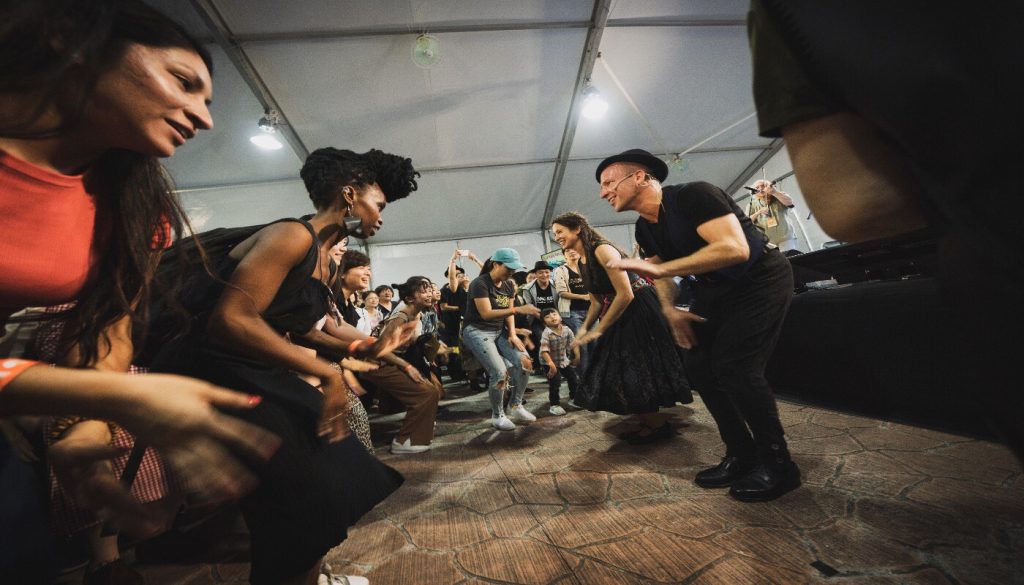
You just mentioned "suitable for everyone". What did you do and in what way is it successful?
In the first year, I wanted to explain what world music is, because some said world music is a term hard to understand. However, I found out that the more we explained, the more the audience confused. Therefore, I learned about that we need not to explain. Every performance on the stage is a part of world music. The important thing is to encourage people to be here and join it.
In 2016 I had a conversation with a Korean jazz festival curator. I saw young people dashed to the stage in the festival's after movie. I asked him: "Do Korean young people like jazz so much?" He answered, "No, they don't like jazz, but they like the atmosphere and want to feel it. Music and music festivals are very different. There is something other than music in a music festival." This conversation inspired me, and then we decided that our goal was not just some concerts but a festival.
At that time although I felt that the audience will accept the performances on the stage as what they are, I wanted people to stay here and love this place. Therefore, we must plan the programs carefully. The music works, which most Taiwanese can appreciate and like, are those innovations based on cultural traditions. Furthermore, there will be many elderlies, so the music could not be too noisy.
Secondly, musicians come here from within Taiwan and other territories. What can they do for the audience besides the performances? Therefore we had dance and music workshops, and lectures. Since 2017, we've seen lots of children dance with their parents in the workshop. This means that we successfully broke the age group barrier. In the same year, we started the Drum Circle activity which let the African drum teacher guide people to feel the rhythm.
What are the changes and special features in the 4th WMF@Taiwan?
To bring something new every year and provide different experiences is very important. If the audiences have new feelings, they will likely come again next year. We hope to establish some legacies for generations in the WMF@Taiwan.
There are two special projects this year. One is that there will be a night show on the Island Stage. Saturday night will be a DJ crossover night. We know young people love electronic music, so we must catch up with the trend. On Sunday night, there will be European atmosphere with the performance of French musicians playing the accordion and the zhongruan.
The other is the OSADIA street hairstyling event from Spain. This was recommended by an Australian curator. He thought this is very suitable for our people. If they can do forty hairstyles in one day, there will be forty carnival-like heads in the site, attracting other people to take photos. It will be a happy and beautiful scene.
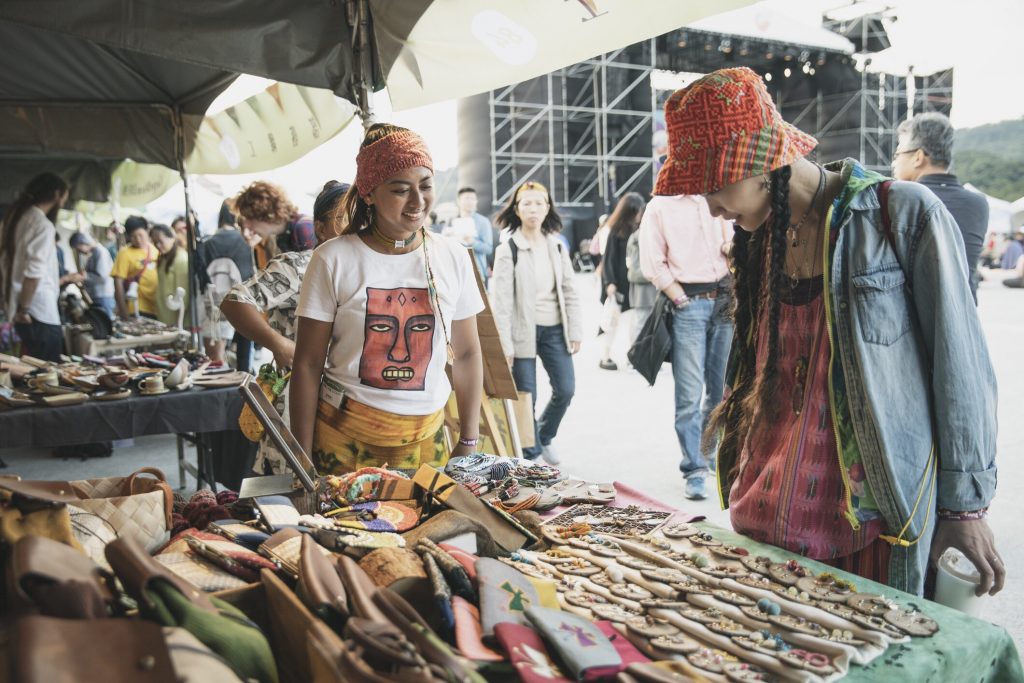
Although you mentioned that you don't explain what world music is anymore, Wind Music and WMF@Taiwan are still the most important world music brands in Taiwan. How do you define the genre "world music"? From Western-centrism to globalization, do you think there is any change in the definition of world music?
In the first place, the term "world music" was born from Western-centrism. Any music other than American music is world music. But today, world music has become a collective name. If any music has traditional and folk elements, we call it world music. We can see almost all kinds of performances in world music festivals all around the world today. The barrier of genres has been broken.
So you agree with the idea that any music with elements from traditions and folk customs can be called world music.
It's necessarily so. I believe that world music grows from the land and connects to every part of human lives. For example, African people use drums to express the sorrow and happiness in their lives. So I think world music represents one's everyday life, emotions, and even the living history.
If we look at this from the American point of view, the development of world music in Taiwan seems quite well. For example, Samingad, Pandull, Jia Jia, and Hao-En Wu, all from the Baliwakes family. They all make great music for Taiwan. It's fair to call them world music.
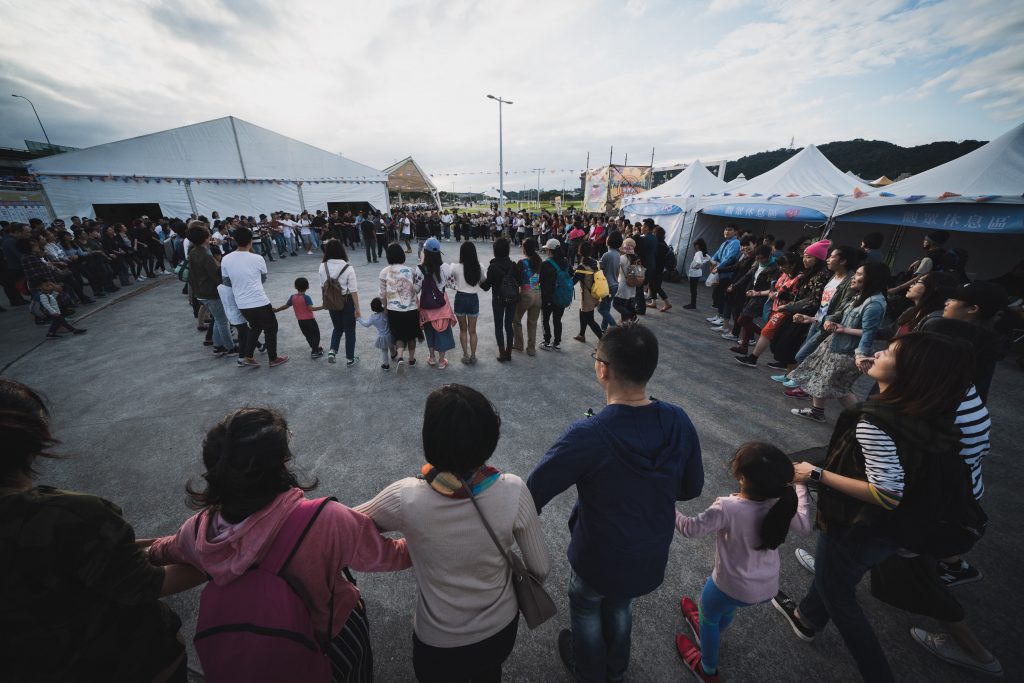
Taiwanese musicians may make different kind of music, including indigenous music, beiguan, nanguan, or Hakka hill songs. But their works can all be called world music. Is it that this term has a definition exclusively in Taiwan?
When they make music, they won't define their works as part of world music. It is because world music is defined from a foreigner's view and the definition is not so rigorous. Maybe we can just get rid of this label after all. That's why I don't want to explain what it is anymore. Just come and listen. You may just consider it "human music."
Why does all these music have to connect with their own cultures? WMF@Taiwan is a platform. We invite international curators to see Taiwanese artists' shows, hoping to create opportunities that these artists will be invited to perform overseas. If an artist lacks of the content from his own culture, it would be very hard to find them out on the stage. The traditions of people and folk customs are important, because they are at the core of one's heart. One's own flowers must bloom from this core.
World music needs not to be traditional. However, it has to be built on the base of traditions to create its own style. For example, there are plenty indigenous bands in Taiwan with a similar format. The line-up usually includes a guitar, a drum set, and a bass. Sometimes there is an extra Jew' s harp or a nose flute at most. After people found out that this is a successful model, more and more musicians tried to copy and imitate it. Finally there will be so many Suming, Sangpuy, and Balai copycats. That's why I want to introduce foreign artists to Taiwan to let people see the wider possibility of music.
Among all the music festivals you've attended, what are the differences between WMF@Taiwan and other festivals in other territories?
The most different thing is that we are pretty small. Comparing with other festivals, WMF is a tiny baby. Every festival is a baby in the very beginning, and this is just the fourth year of WMF. It's a long road to establish legacies for generational inheritance.
Although WMF@Taiwan is still a small baby, but it's a good one. The Hungary group Muzsikás, who performed thousands of gigs all over the world, told me that this is the first time they saw adults and children enjoy music together in the same music festival. A manager of a German artist once told me, "This is a great music festival. Group receptions, on-stage equipments, and backstage planning are all professional." Since the volunteer team is managed by Lei Shan Insurance Broker, the service work is attentive and satisfactory. They take this festival as their own business, therefore they become a very important part of the festival staff.
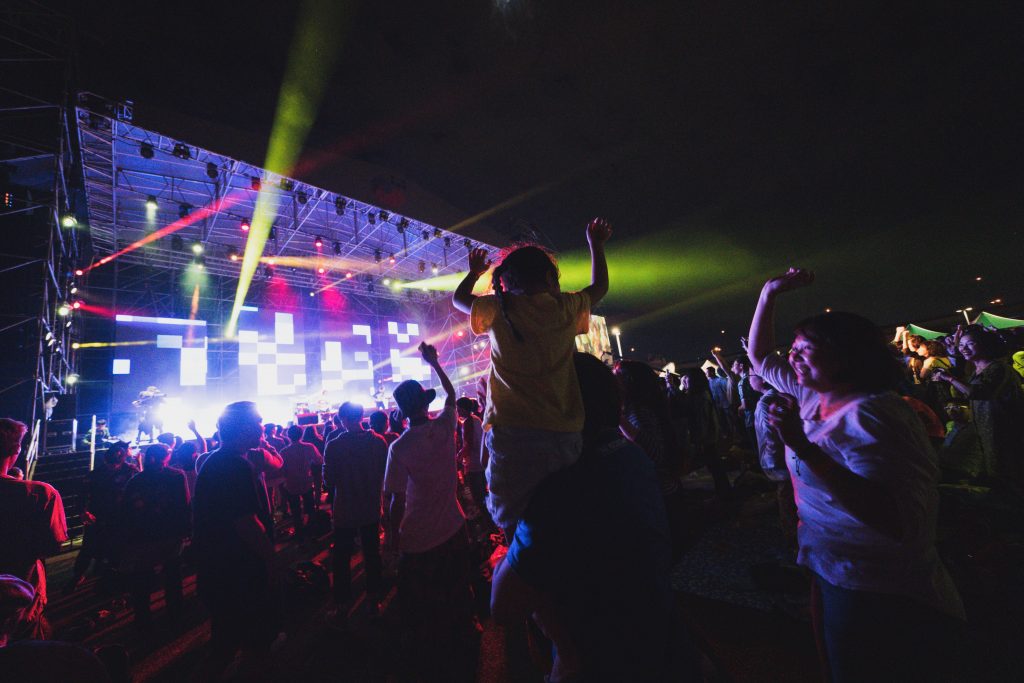
Another issue is that there has been many difficulties for music festivals in Taiwan. In this situation, how does WMF@Taiwan response? Or, among the music festivals of so many different scales in Taiwan, what is the role that WMF@Taiwan plays?
Above all, WMF@Taiwan is a government project. If someday the government decides that it is not necessary to do this, there will be no budget for us to do it. However, each of our staff members wants to keep running this festival. We have worked hard for four years, and gained experiences and reputation. If one day the government cancels this project, Wind Music will take it over. But we'll be facing financial issues for sure.
There are three main income sources of a music festival: the government funding, the enterprise sponsorship, and the ticket sales. None of music festivals in Taiwan can afford the expense with the ticket sales only, therefore the resources from the government and enterprises are very important. But why do we insist to sell tickets? Because we want people to learn about that art is valuable. Want to enjoy these? Fine, please do something to support this music festival. It's like gathering people to fulfill a dream, but this dream is a vulnerable bubble because there are so many realistic problems.
WMF is devoted to mutual communication between Taiwan and other countries, and helped many Taiwanese artists to perform overseas. On the way of promoting Taiwanese music to the global market, what are the weak spots that people have to strengthen?
First of all, we have to expand the connection with larger music festivals. This is the reason why these two years we attended the largest world music fair WOMAD, set up our own booth there, and promoted WMF@Taiwan and Taiwanese artists.
Secondly, the lack of English information is a severe issue. Many foreign curators and audiences complained to me that it's very hard to search information about Taiwanese music. The lack of live videos is another. Music videos are studio works, while live videos show an artist's charisma on the stage. Taiwanese artists have to reinforce their global strategies.
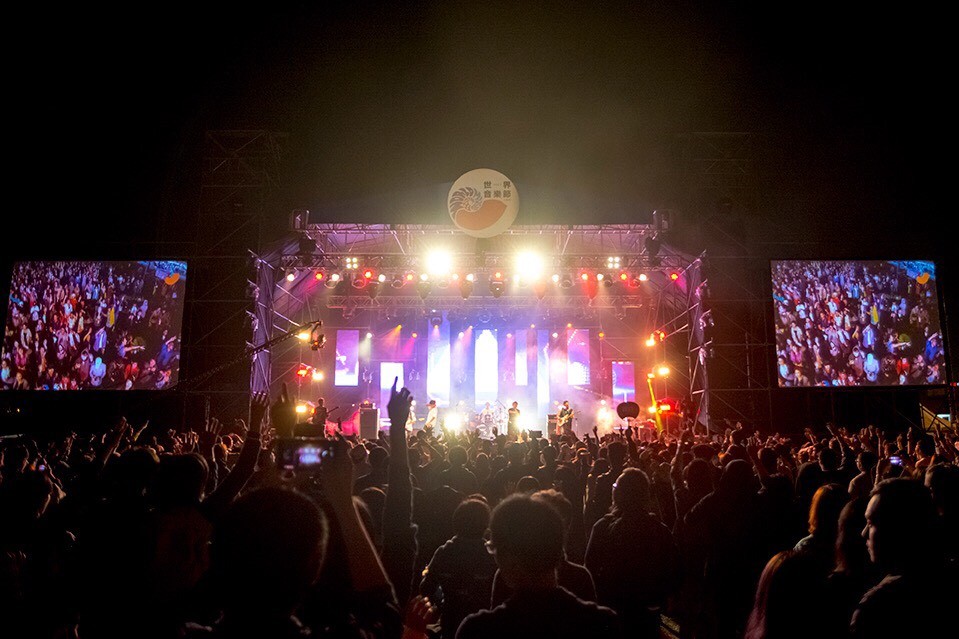
What kind of music can be the representative of Taiwan while recommending Taiwanese music to foreign curators?
To be honest, the indigenous music is easier to promote. I do care about if an artist is good looking on the stage and if he or she is attractive by that. So do foreign curators want the same things from Taiwan music. They value cultural symbols. Taiwu Ancient Ballads Troupe is the easiest one to promote these years because they wear traditional costumes and their voices are amazing. Another example is Sangpuy. He also has an amazing voice. As I mentioned earlier, the voices of Taiwanese indigenous people are great. They can put more effort to promote that.
Lastly, what is the future for WMF?
May I share my wildest dreams? I hope the site could be larger with far more stages. I hope the fans can have plentiful experiences from different cultures. For example, besides lectures and workshops, we can set up a kitchen and have the artists to cook their local cuisine for the audiences. While cooking, they can introduce the special meanings of ingredients in their homeland. Anyway, I hope we can create a place for multi-experiences.
I hope the world music festival can become important marketing force and a special celebration event of this city. If there are more and more foreign tourists, we can accumulate more features of our own culture and then create a unique festival of our own.
Original text by Azo
Translated by Roger Li





